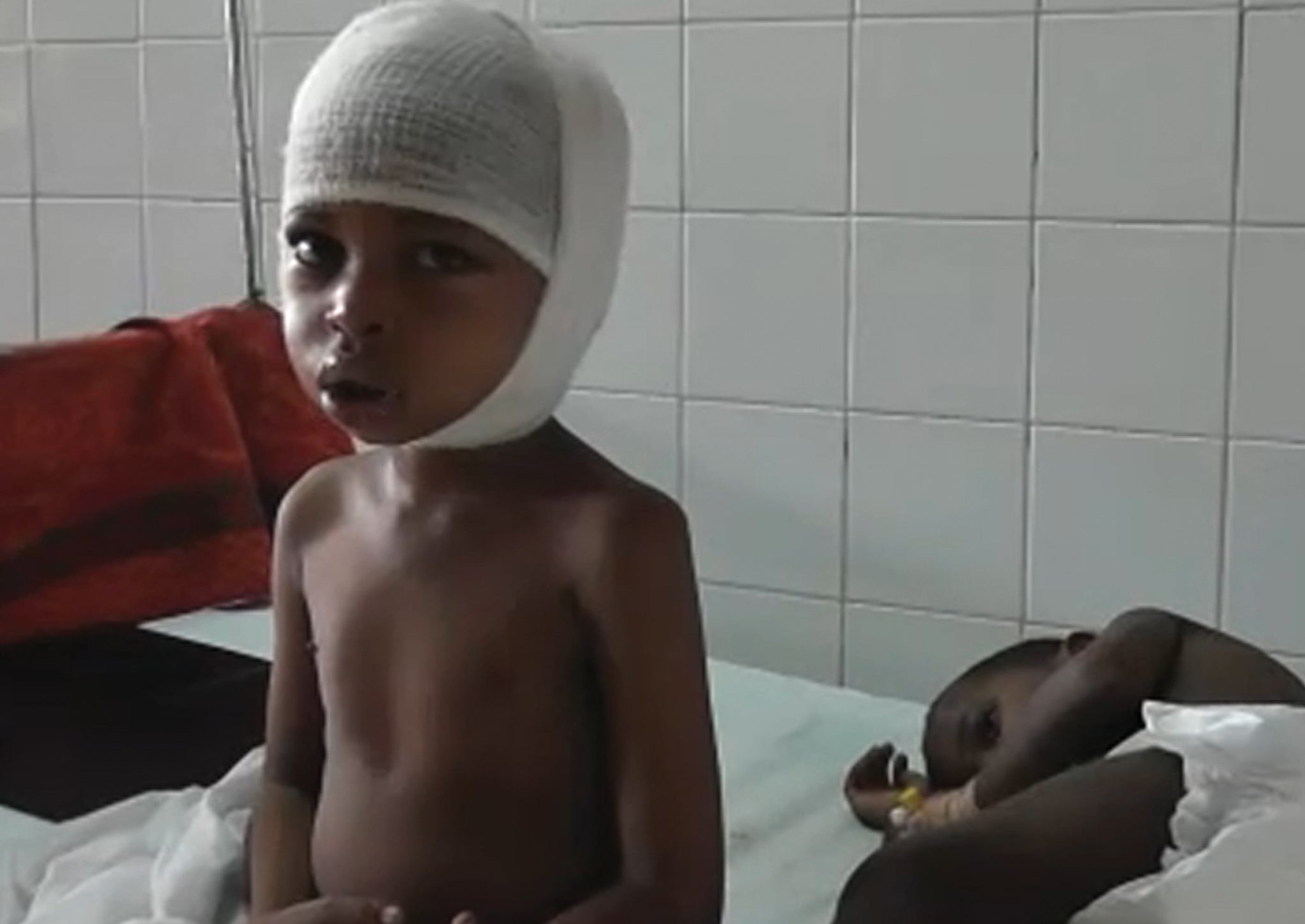Rory Peck Awards 2014 News Finalist: Pacôme Pabandji
Pabandji has been nominated for Central African Republic: Descent into Chaos

The Rory Peck Awards celebrate the dangerous and invaluable work of freelancers around the world. This year's event will be hosted on November 19 at the BFI Southbank. To find out more click here.
Pacôme is a 23 year old freelance journalist born in Central African Republic. He started his journalism career in 2011, working for local news website, Le Journal de Bangui, then pan-African TV channel, Africa 24, and Cameroon Radio Television (CRTV) as a presenter.
He began freelancing for Agence France Presse TV in September 2013, just as the conflict in Central African Republic plunged the country into chaos and violence. He has been covering all aspects of the conflict since then.
He footage covers the daily atrocities committed in Bangui and other parts of the country, as well as eye-witness testimony from families, refugees and humanitarian workers. It also includes glimpses of everyday life, such as a church service and fashion show.
Pacôme's work has been at great personal cost. He has been caught in crossfire, held by various militias, injured and threatened. His partner and daughter have been forced to leave the country. Pacôme himself cannot live in the family home.
From Pacôme Pabandji:
“Working in this under-reported war, I feel lucky every time I escape danger. Sometimes I ask myself if I will make it, but so far I have been lucky and I am safe.
Daily life is never easy. Sometimes I'm attacked, held and the released, threatened with death, and so on. Several times I've been caught in the crossfire between Seleka and anti-Balaka militias. They never seem to have a specific target and sometimes I've only just escaped with my life.
In August last year, in Bossango, I broke my hand trying to avoid a barrage of gunfire. When I returned back to Bangui, the Seleka stopped me and threatened to kill me because I had filmed the horrors being committed. Even home isn't safe any more. On January 20, I was attacked there by an armed group. My partner and daughter were also there at the time. They saw me, gun to my temple, pushed up against the wall as our house was looted. Risks are normal. During protests you have to avoid stones, or sometimes escape an excited lynch mob. On March 25, I was caught in an intense fire fight between the anti-Balaka and the MISCA African force. I was pinned down for two hours. Even with a flak jacket, you don't fee safe.
After filming a lynching, the anti-Balaka militia called me with death threats five to seven times a day for two weeks. The Seleka held me and wanted to kill me while I was covering a Muslim protest in a neighbourhood where Muslims have re-grouped since the fall of Michel Djotodia.
At night I cannot sleep because I'm haunted by all these horrors, people decapitated in front of my eyes, all those atrocities which I film, which I watch. It's difficult to eat steak when you've just seen a man decapitated or lynched. Sometimes I can lose my appetite for days.
I'm often comforted by the fact that without me, without my camera, many more lives would be in danger. And yet my life is broken, my youth spoiled.
It helps to have colleagues who are with me even if they are far away, trying to comfort me after hardships, and to believe that what I do saves lives. It's my job, something I have chosen voluntarily. I will keep doing it and try to hold on.“

Join our commenting forum
Join thought-provoking conversations, follow other Independent readers and see their replies